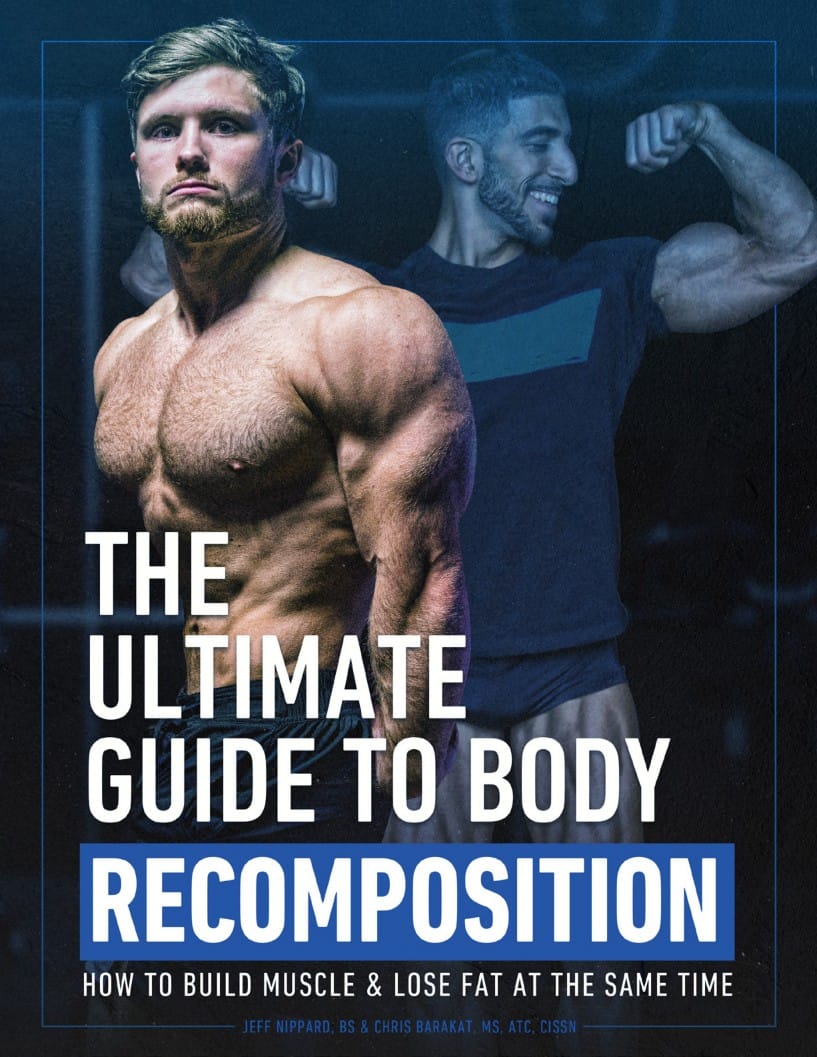Ultimate Guide to Body Recomposition (Jeff Nippard) - Notes

When I'm in my tri-weekly gym sessions, I'm consistently wondering whether it’s possible to build muscle while losing fat or whether it's either or. According to The Ultimate Guide to Body Recomposition by Jeff Nippard and Chris Barakat, the answer is yes—but only if you approach it strategically. This book breaks down the science behind body recomposition and shows that the key to success lies in the details, especially when it comes to nutrition.
Here are some of the key takeaways the book have that I have started to implement into may daily routines to eventually have that “lean and muscular” look.
📈 Track Your Progress Beyond the Scale
One of the biggest mistakes people make is obsessing over the number on the scale. This book recommends a multi-pronged approach to track your progress:
- Weigh yourself 4-7 times a week to get an accurate weekly average. The average is important because we don't know whether water retention is the root cause of weight gains on any particular day.
- Take circumference measurements (waist, chest, arms) once every two weeks or monthly.
- Use progress photos 1-4 times a month to visually assess changes. Lighting and angles should be consistent for accurate comparisons. This is because sometimes, you may be gaining lean mass while losing fat, so not losing weight may not always be a bad thing.
Following the above tips, you'll have a more accurate picture of your progress. Of course, there are more fancier ways to measure your progress, such as using DEXA scans and more but that is an avenue you can go after if you are super serious about accurate data rather than just doing it for the big picture or general health improvement reasons.
📋 Master Your Macronutrients
Body recomposition relies on hitting the right macronutrient ratios. Here’s the breakdown:
- Protein: Aim for 1.2 to 1.6 grams per pound (or about 2.6 g to 3.5 g per kg) of lean body mass. Protein is the most critical macronutrient for building muscle while losing fat.
- Fats: These should account for 20-35% of your daily caloric intake. If you have more body fat, lean toward the higher end of that range.
There is a strong relationship between body fat percentage and insulin sensitivity [...] The higher your body fat percentage, the lower your insulin sensitivity. Thus, the higher your starting body fat percentage is, the lower your carbohydrate intake should be.
- Carbs: Fill the rest of your calories with carbs. Carbs are vital for fueling your workouts and recovering effectively, especially on training days.
The book stresses that while protein is king, fats and carbs also play essential roles in balancing your diet, hormones, and energy levels.
⏰ Nail Your Nutrient Timing
When and how you eat matters, especially if you're lean or getting leaner. Here are a few timing strategies:
- Pre-Workout: Lean individuals should focus on slower-digesting carbs (like oats or sweet potatoes) to maintain energy. If you have higher body fat, nutrient timing is less critical, but still valuable.
- Post-Workout: Consuming protein and carbs after training can boost recovery and muscle growth. Think of it as replenishing your energy stores and giving your muscles the building blocks they need.
For most people, nutrient timing won’t make or break their results, but it can add that extra edge—especially if you’re looking to maximize muscle gain while in a caloric deficit.
🫳 Supplements: Nice to Have, Not a Magic Fix
Supplements can help optimize your body recomposition journey, but they aren’t necessary for everyone. The book recommends staples like:
- Creatine to improve strength and muscle growth.
- Fish oil to support heart health and fat loss.
- Protein powder as a convenient way to hit your daily protein goals.
However, the authors make it clear: supplements are just the cherry on top. Your success hinges on nailing your diet, training, and recovery first.
Final Thoughts
Just like with most health advice, whether you're adjusting calories, tweaking your macros, or experimenting with nutrient timing, consistency is the name of the game. Don't stress yourself out expecting overnight transformations. Commit to the process, and the changes will follow. The journey is more important than the destination.
I personally use "MyFitnessPal" to help me with tracking. It allows me to log almost any food in the world if it has a bar code, or at least guestimate its caloric and nutritional content, and track it alongside my weight and progress photos.
Favorite Quote from The Book
IF YOU COULD KICK THE PERSON IN THE PANTS RESPONSIBLE FOR MOST OF YOUR TROUBLE, YOU WOULDN’T SIT FOR A MONTH.”
- THEODORE ROOSEVELT
Quote resurfaced using Readwise







Member discussion